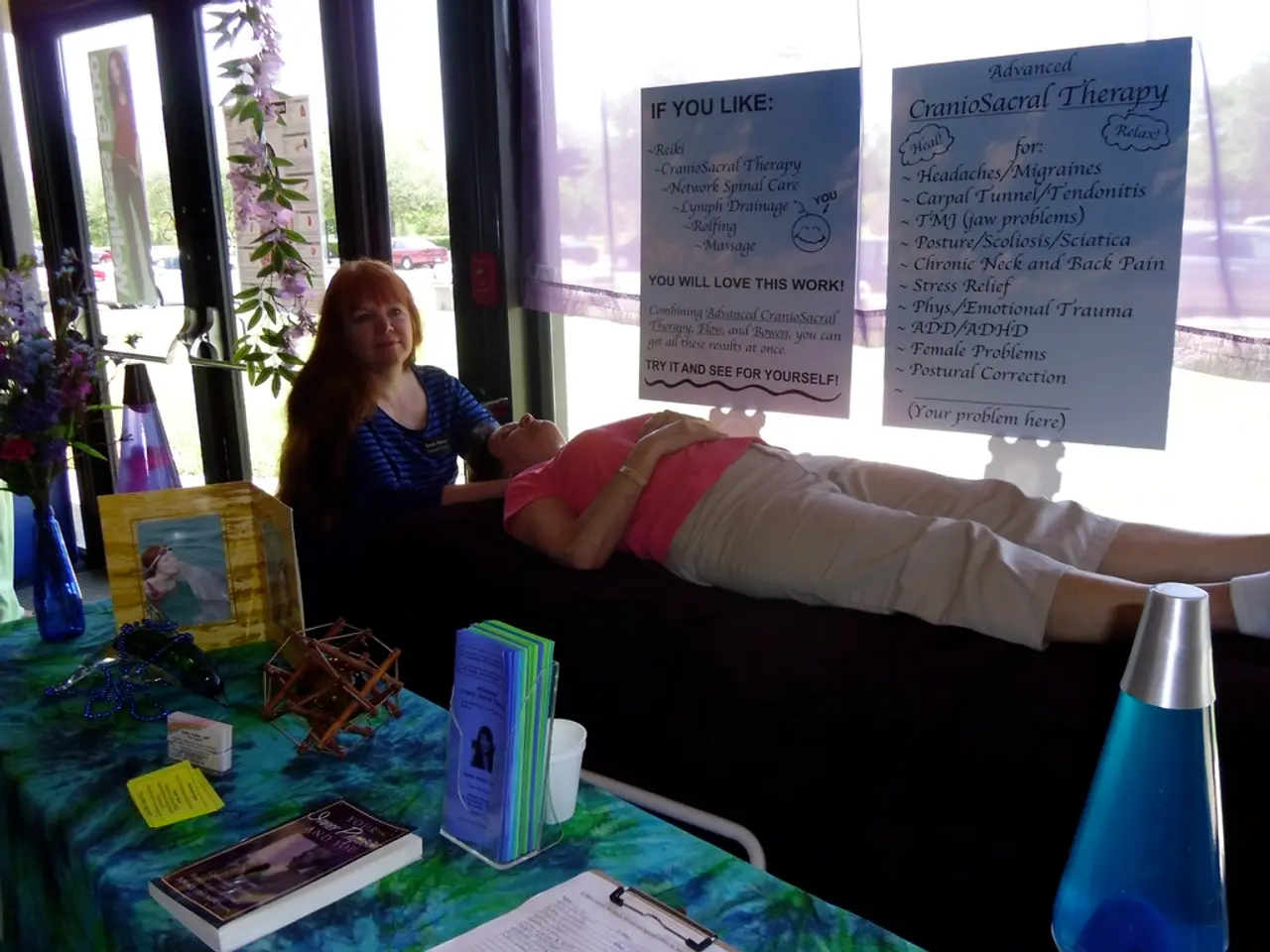Tai chi exercise could potentially aid stroke survivors in overcoming depression, anxiety, and sleep disturbances
Tai Chi Shows Promise in Improving Mental Health for Stroke Survivors
A study conducted by the University of Arizona has found that Tai Chi, an ancient Chinese martial art, may offer significant benefits for stroke survivors suffering from depression, anxiety, and sleep problems.
Participants in the study took part in a Tai Chi class for eight weeks, following a routine that included a 10-minute warm-up period, 40 minutes of Tai Chi exercise using the Wu style, and a 10-minute cool-down period.
The findings suggest that Tai Chi may provide relief from depression and anxiety, as well as improve sleep quality, in stroke survivors. By the end of the study, participants experienced significant reductions in depression, anxiety, and sleep problems.
The practice of Tai Chi for one hour, three times a week, is believed to lead to improvements in sleep quality for stroke survivors. This is due to Tai Chi's emphasis on breath control and physical relaxation, which reduces sympathetic nervous system activity, lowering hyperarousal linked to anxiety and sleep difficulties.
Tai Chi's meditative movement and mindfulness also promote emotional regulation and reduce "mental chatter," helping to alleviate anxiety and depressive symptoms. Exercise modalities such as Tai Chi are shown to improve sleep by affecting hormone secretion (e.g., melatonin) and emotional control.
Tai Chi is categorized as moderate physical activity, which has demonstrated antidepressant effects through biological mechanisms like increasing brain-derived neurotrophic factor (BDNF), neurogenesis, and modulating neurotransmitters, thus improving depressive symptoms.
Though direct studies specifically in stroke survivors are limited, there is strong consideration and readiness among stroke patients for balance training interventions like Tai Chi, reflecting its applicability in stroke rehabilitation and well-being promotion.
While most data focus on general or cancer-survivor populations, the physiological and psychological mechanisms are relevant for stroke survivors, who often experience depression, anxiety, and sleep troubles as part of post-stroke sequelae.
In summary, Tai Chi effectively reduces depression, anxiety, and sleep problems and is well-suited for stroke survivors, particularly as a gentle, accessible, and holistic exercise that integrates mindfulness and physical activity. Further stroke-specific randomized controlled trials would strengthen the evidence base.
It's important to note that only 10% of stroke survivors recover almost completely, and 80% of strokes are preventable. For more information on preventing strokes, you can read The Stroke Syndrome: 5 Signs it's Stalking You - Plus the Hidden Causes and Preventive Measures You've Never Heard About!.
For those interested in learning Tai Chi, an easy beginner's video is available here (link). Tai Chi can also be practiced at home using YouTube videos or DVDs. Additionally, Tai Chi can help keep arteries soft and maintain heart health, offering further benefits for overall well-being.
Tai Chi's focus on reducing sympathetic nervous system activity through breath control and physical relaxation could potentially help manage inflammation, a key factor in heart health.
The meditative aspect of Tai Chi, promoting emotional regulation and mental clarity, may contribute to overall mental health and wellness, offering benefits beyond just sleep quality improvement.
Further research is necessary to establish the direct impact of Tai Chi on stroke survivors' heart health, as most studies have primarily focused on mental health and sleep benefits. However, considering Tai Chi's moderate physical activity nature and its potential to improve sleep quality, it's plausible that heart health may also see improvements with regular practice.




